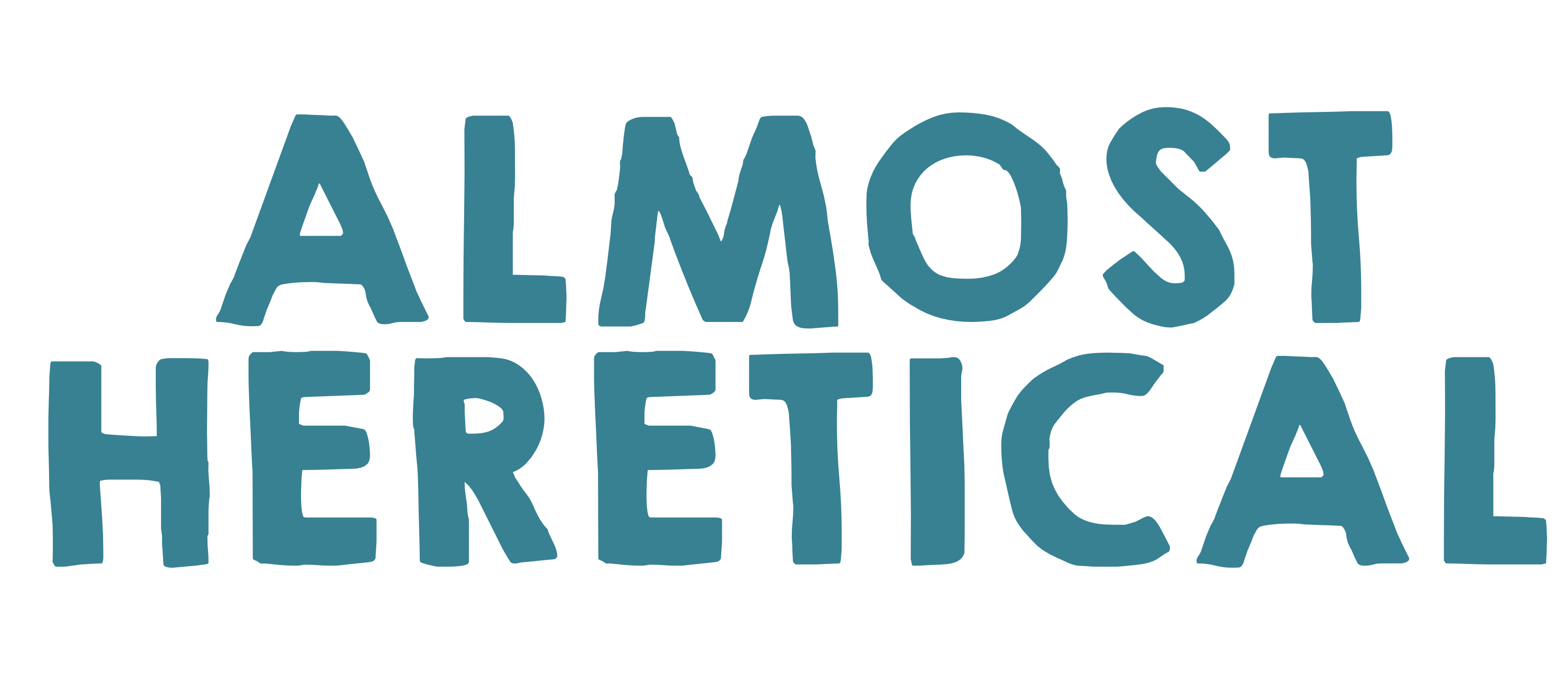Genesis Wasn’t Written to Comfort—It Was Written to Explain
What happens when we stop reading Genesis as a series of moral tales—and start reading it as political history?
In this episode of Almost Heretical, Nate and Shelby revisit six familiar stories from the second half of Genesis. But instead of seeing them as ancient fables or Sunday school lessons, they ask: What if these were origin stories meant to explain Israel’s identity, justify its borders, and shape its future?
Turns out, they weren’t just telling stories. They were telling themselves who they were.
The Bible’s Political Backstory
The second half of Genesis—Jacob and Esau, Dinah and Shechem, Judah and Tamar, Joseph in Egypt—is filled with drama. But behind the drama is something deeper: political imagination.
When these stories were written down, Israel was already a people. The tribes already existed. The borders were already contested. The writers weren’t just preserving memory—they were making sense of their place in the world.
Here are six moments that reveal just how much politics, power, and survival are baked into the earliest pages of scripture.
1. Jacob and Esau: The Battle for Primacy
Jacob steals Esau’s blessing. It’s a famous story—one that’s been used to teach perseverance, trickery, and even predestination.
But read politically, it’s a myth explaining why Israel (Jacob) deserves dominance over Edom (Esau). The younger brother wins. Why? Because that’s how the authors saw their own unlikely survival.
What this invites today:
- Question which narratives you’ve inherited—and why.
- Notice how power dynamics are encoded in family stories.
2. Wrestling with God: The Meaning of “Israel”
Jacob wrestles a mysterious figure all night and is renamed “Israel”—the one who struggles with God.
This isn’t just a spiritual metaphor. It’s a national identity. To be Israel is to wrestle with the divine, with others, with yourself.
What this invites today:
- Embrace spiritual tension as part of faith.
- See naming as an act of claiming identity through conflict.
3. Dinah and Shechem: Tribal or National Memory?
The story of Dinah has been used to teach about and family vengeance. But it likely functioned as a story explaining why Israel distrusted the Shechemites.
It wasn’t about Dinah’s trauma. It was about tribal boundaries.
What this invites today:
- Consider how women’s stories are used to serve male-driven narratives.
- Reflect on how we justify through memory.
4. Joseph and Aseneth: Intermarriage and Identity
Joseph marries an Egyptian priest’s daughter—something that became problematic later in Jewish history. To fix this, later writers imagined Aseneth as a righteous convert (Joseph and Aseneth).
It’s one of the earliest stories of a Gentile “becoming” part of Israel. And it tells us more about later anxieties than earlier history.
What this invites today:
- Rethink purity and belonging as fluid and evolving.
- Look at how texts shift to meet cultural needs.
5. Tamar and Judah: A Righteous Outsider
Tamar seduces her father-in-law while disguised as a prostitute, exposes his hypocrisy, and is called “more righteous” than him.
It’s one of the boldest gender reversals in the Bible—and there’s no divine intervention. Just human courage and justice.
What this invites today:
- Reconsider what righteousness looks like.
- Value stories where women preserve what men neglect.
6. Blessings of the Twelve Sons: Backwriting Identity
Jacob’s final words to his sons are often read as prophecy. But they’re more likely retrospective justifications for how each tribe turned out.
Judah becomes dominant. Reuben fades. Levi disperses. The future was already the past when this was written.
What this invites today:
- Question what counts as prophecy when history is being explained backward.
- Look at how we narrate our own rise or fall through “blessings.”
Why This Matters
Reading Genesis this way doesn’t diminish its power. It deepens it. It reminds us that the Bible isn’t a flat, moral rulebook. It’s a living document full of competing voices, deep emotions, cultural tensions, and political hopes.
The writers weren’t trying to give us neat takeaways. They were trying to survive. To tell their story. To make sense of a complicated world.

